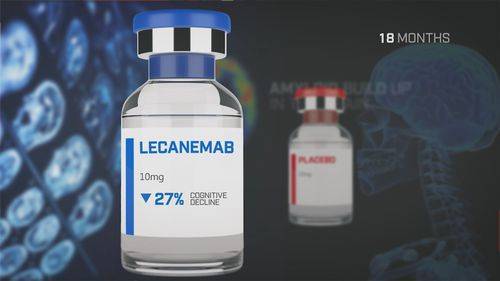A novel Alzheimer’s disease treatment drug, lecanemab, is nearing full approval in the US. It is developed by Japanese pharmaceutical company Eisai and US firm Biogen.
Excitement is also building in Japan where the population of Alzheimer’s patients is growing and Prime Minister Fumio Kishida has prioritised dementia. The drug is undergoing an expedited review by the Japanese Pharmaceuticals and Medical Devices Agency and could potentially be approved this autumn.
Lecanemab: The Alzheimer’s Game-Changer
Lecanemab, also known as Leqembi, is a ground-breaking treatment. Unlike the four Alzheimer’s drugs currently available in Japan that focus on easing symptoms, Lecanemab is a disease-modifying drug. This means it targets the underlying disease mechanisms. It specifically aims to eliminate a protein called amyloid-beta believed to cause brain cell death in Alzheimer’s patients.
In an international clinical trial involving 1,795 early-stage Alzheimer’s patients, lecanemab demonstrated a 27% reduction in cognitive decline after 18 months compared to those on placebo. Researchers suggest that this could delay the progression of Alzheimer’s by 5 to 7½ months within 18 to 24 months of treatment onset.
A Necessary Step Forward
In Japan, Alzheimer’s disease is the most common form of dementia. It’s a condition that starts with mild memory loss and can eventually prevent people from carrying out everyday tasks. The government estimates that over 6 million people in Japan have dementia, with another 4 million at the pre-Alzheimer’s stage known as mild cognitive impairment (MCI). These figures are likely to rise due to Japan’s rapidly ageing population. By 2025, it’s expected that 1 in 5 people aged 65 or over will have dementia.
Dr. Takeshi Iwatsubo, a neuropathologist at the University of Tokyo and Alzheimer’s specialist, predicts that initially tens of thousands of patients per year in Japan could receive lecanemab, potentially rising to hundreds of thousands in the future.
Challenges to Overcome
Despite its promise, lecanemab’s journey to patient use in Japan isn’t without obstacles. Increasing specialist doctors, establishing a patient screening system, and addressing financial considerations are necessary. Lecanemab, targeting MCI and early Alzheimer’s patients, can cause brain swelling. Two fatalities occurred during the clinical trials. However, the manufacturers denied the drug causing these deaths.
The cost of lecanemab is another significant issue. The estimated annual price tag is $26,500 per person in the US. Although the Japanese government subsidises expensive medical treatments, the high cost of such treatments is likely to provoke discussion over the extent to which the state should bear these costs.
A Significant Milestone
Despite challenges, the potential lecanemab approval marks a big step in Alzheimer’s treatment. Dr Iwatsubo states that this is a pivotal moment in our fight against Alzheimer’s.
Dr Sakurai, from the Research Institute at the National Center for Geriatrics and Gerontology, notes, “Clinical trials for disease-modifying drugs for Alzheimer’s have been conducted for over 20 years, and have been marked by failure after failure. (For years) it was almost like space development.”
These specialists also emphasise the need to enhance non-pharmaceutical interventions and establish a system for administering the drug safely. They call for a comprehensive system. These include capacity building for amyloid scans, cerebrospinal fluid tests, and nurturing more dementia specialist doctors.

